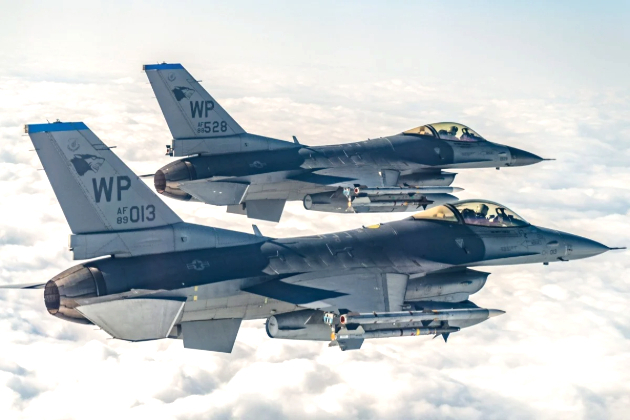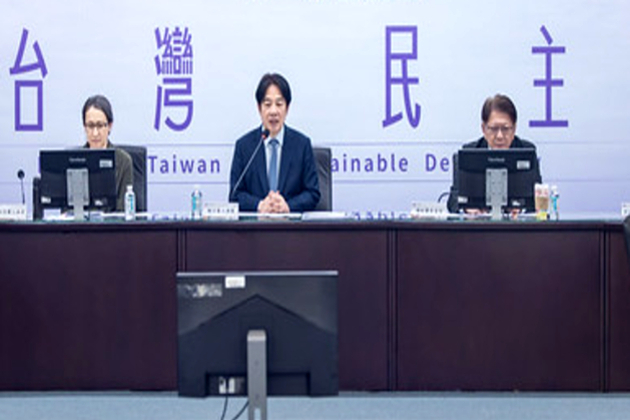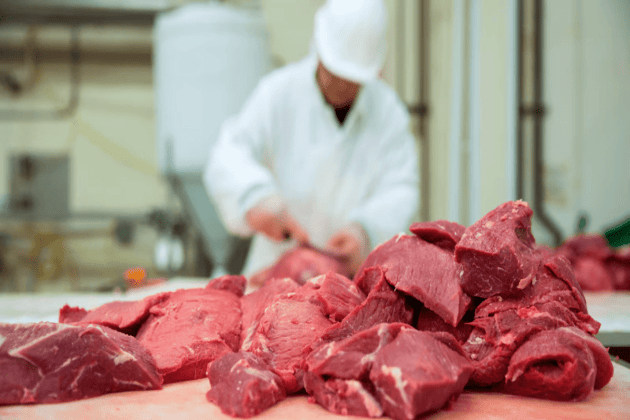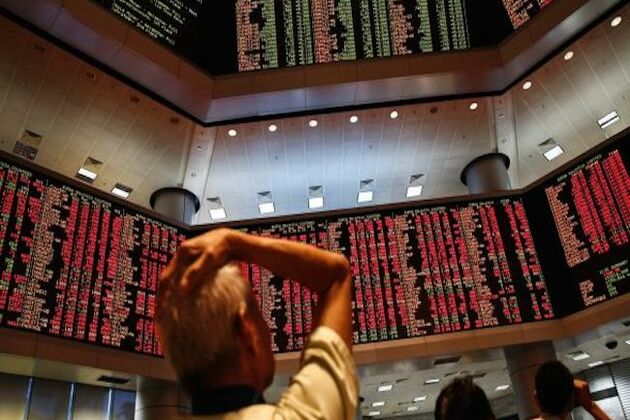US Farmers Hope for US-China Trade Deal as Pork, Soybean Tariffs Ease
Voice of America
17 Sep 2019, 07:12 GMT+10
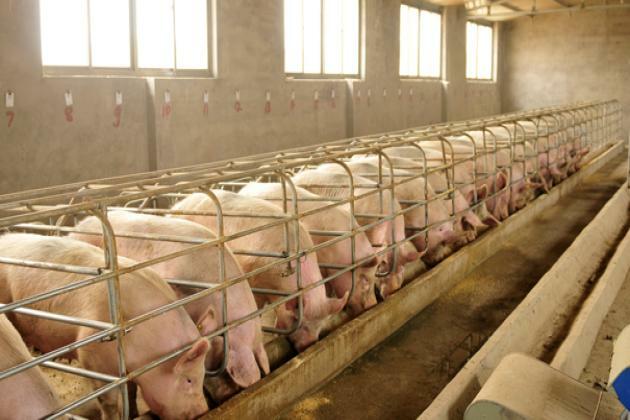
- Thomas Titus handles all the challenges of running his sprawling Elkhart, Illinois, farm, but lately, he isn't making a lot of money doing it.
- "We're producing corn and we're producing soybeans at below cost of production almost, and we're raising pigs at below cost of production," he told VOA, his voice competing with the sou ...
- It's not unusual for farmers to diversify their products but Titus says his pork operation isn't typical.
ELKHART, IND. - Thomas Titus handles all the challenges of running his sprawling Elkhart, Illinois, farm, but lately, he isn't making a lot of money doing it.
"We're producing corn and we're producing soybeans at below cost of production almost, and we're raising pigs at below cost of production," he told VOA, his voice competing with the sounds of hundreds of hogs housed in one of several nearby buildings. "We're in a challenging time whenever we get to the end of the year and we need to shore up some of those books."
It's not unusual for farmers to diversify their products but Titus says his pork operation isn't typical.
"We're somewhat of a rarity given our size. We're a 600-sow farrow-to-finish farm, so we raise pigs from birth up to market weight, so our size and what we do is a little more dynamic and diverse," he said.
Dependent on trade
In total, Titus raises about 12,000 pigs a year, many sent to the international market. He said much of his profit comes from such exports.
"One in every four pigs we raise goes to a foreign country of some kind, so we are extremely dependent on those positive trade negotiations and trade agreements for the success of our business."
One key buyer of U.S. pork is China, the world's largest importer, which is dealing with a major outbreak of Asian swine fever. As a result, China's pig population has decreased about 20%. Some estimates indicate China has culled more than 1 million pigs.
When it was needed most, American pork was more expensive than other sources because of steep tariffs imposed by the Chinese government, one of many Beijing imposed on American agricultural products amid a protracted trade war with Washington.
Now, China has announced a tariff exemption on U.S.-produced pork, relaxing a punishing 72% duty.
Trade war damage done
But economic damage has been done to the U.S. pork industry.
"We've lost about $1 billion worth of pork sales, or what Iowa State University has put out a study, $8 per hog is what it's cost us on the tariffs," said Karl Setzer, a commodity risk analyst with AgriVisor, who added that even before tariffs, China tended to spread out its purchases.
"China doesn't like to marry themselves to one commodity supplier, be it pork, beef, soybeans, whatever it is," he said.
So when American pork couldn't compete on price because of tariffs, Setzer said China turned more to other suppliers, like the European Union and Brazil.
"Brazil has seen their trade jump 5% in the last year. The trade war isn't helping us at all. We would likely have a bigger share because we are a bigger pork producer, but it comes down to value and what we are willing to sell our pork for," Setzer said. "They're (China) still showing interest in our offerings, but when you look at all the other factors, the trade war on a whole is probably one of the worst ones we've been in."
It's unclear how much China will increase purchases now that certain tariffs, including those on pork and soybeans, are removed.
Supporting Trump, not tweets
And even though, as with other farmers, Titus has taken direct hits for the price of almost everything he is producing on his farm as the trade war continues, he said he still supports President Donald Trump, but would like to see fewer trade negotiations happen via presidential tweet.
"It takes three tweets and this market takes a crash," he said.
Which is why Titus hopes upcoming face-to-face negotiations between the United States and China produce tangible, long-term results, creating some stability for commodity markets, and ultimately his bottom line.
Source: VOA
 Share
Share
 Tweet
Tweet
 Share
Share
 Flip
Flip
 Email
Email
Watch latest videos
Subscribe and Follow
Get a daily dose of Hong Kong Herald news through our daily email, its complimentary and keeps you fully up to date with world and business news as well.
News RELEASES
Publish news of your business, community or sports group, personnel appointments, major event and more by submitting a news release to Hong Kong Herald.
More InformationChina
SectionPhilippines says F-16 purchase not targeting China, any others
MANILA, Philippines: A Philippine security official stated that acquiring F-16 fighter jets from the United States will not harm any...
Hegseth calls Japan key to countering China, military upgrade planned
TOKYO, Japan: U.S. Defense Secretary Pete Hegseth said Japan is essential for handling China's aggression, especially in the Taiwan...
Taiwan's President Lai gathered officials ahead of Trump's tariffs speech
TAIPEI, Taiwan: Taiwan's leadership was on high alert ahead of the U.S. tariff announcement, with President Lai Ching-te convening...
Radio Free Asia faces shutdown without urgent court relief
WASHINGTON, D.C.: Radio Free Asia, a key voice in press freedom across the continent for nearly three decades, is now warning it may...
US beef sales to China skid after Beijing lets export approvals lapse
CHICAGO, Illinois: U.S. beef exports to China have experienced a sudden slowdown, as a lapse in Chinese regulatory approvals and ongoing...
Silent donors give life, education to many
Xing Yunjing places a name sticker on the memorial wall for donors at an exhibition hall of Tianjin Medical University in north China's...
Business
SectionDow Jones drops 329 points as stock sell-off continues
NEW YORK, New York - U.S. stocks settled on Monday following massive falls across the globe. Hong Kong's key index, the Hang Seng dived...
Stellantis halts Windsor production amid tariff tensions
WINDSOR, Ontario: Production at Stellantis' Windsor, Ontario assembly plant will pause for two weeks, as mounting trade tensions trigger...
Tesla struggles as sales drop and competition rises
AUSTIN, Texas: Tesla's early-year performance has taken a hit, as sliding sales, rising competition, and CEO Elon Musk's growing political...
India’s jewellery exports hit by US tariffs
MUMBAI, India: India's jewellery exporters are facing their toughest year in over a decade as fresh U.S. tariffs threaten to cut off...
Mitsubishi eyes role in Alaska’s LNG export project
TOKYO, Japan: Mitsubishi Corp is weighing a potential role in Alaska's ambitious LNG export project, as the Japanese trading giant...
Netflix expands language tools to boost global viewing
LOS GATOS, California: As international content fuels its global growth, Netflix is expanding its language tools on TV to help users...

